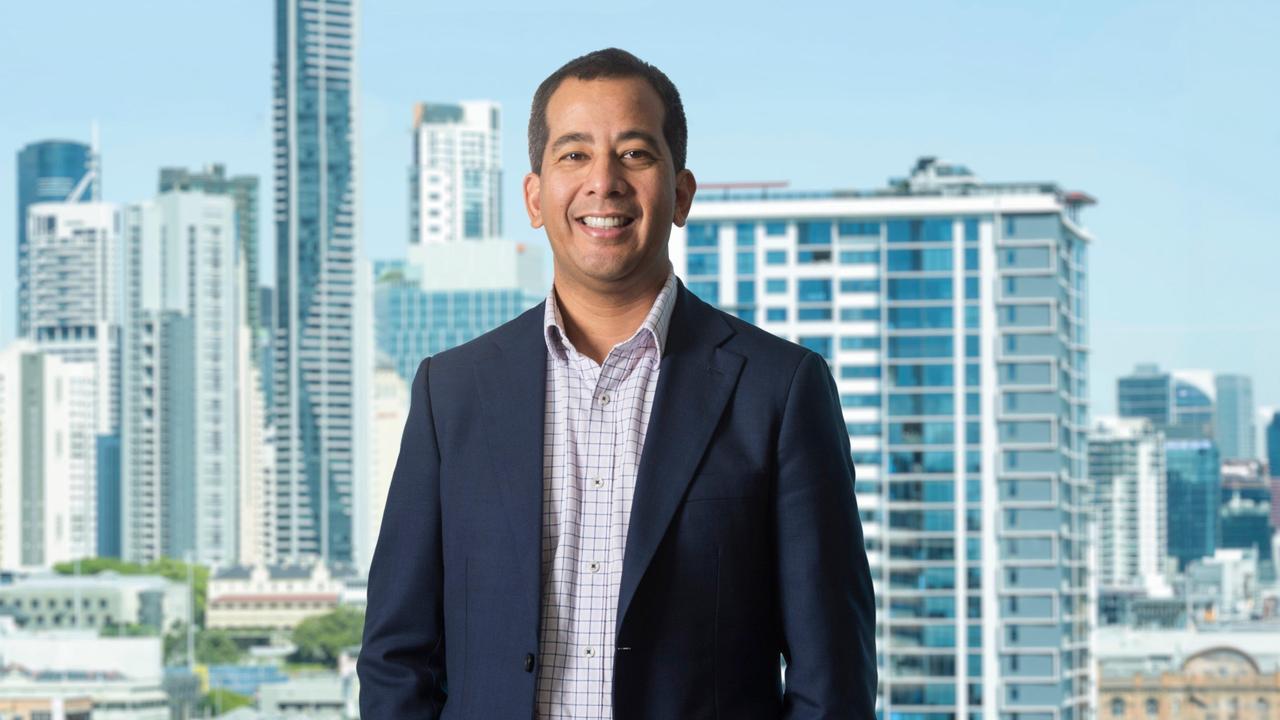Future Brisbane: We can become world leader in tech and innovation
Brisbane 2032 can replace a reputation of industry failure with an example of transformation and success that provides a model for the world, writes Ed Chung.

There are two certainties about the Brisbane 2032 Olympic and Paralympic Games.
Firstly, like all Games, the news in the years leading up to the event will be full of fears of impending doom and worries about white elephant infrastructure.
Secondly, it will be a triumph.
Australia knows how to deliver a brilliant Games. And Brisbane knows how to put on a show.
We should be planning now how we use Brisbane 2032 itself – its lead-up, its delivery and the infrastructure left when it is all over – to showcase what Queensland is capable of.
While we’ve heard plenty about those cities left with derelict stadiums and big debts, the example we should look to is Barcelona. There was a city that had languished out of the world’s eye for decades but whose amazing beauty and unique culture suddenly was thrust in front of televisions around the world.
How Brisbane can become a global leader in Indigenous tourism
Search for the next Nikki Webster begins as Brisbane prepares for 2032 Olympics
Barcelona used the Olympics as a springboard to build a tourism economy. Queensland can use it to make the leap from tourism and mining to a world-renown centre of 21st century tech, innovation and entrepreneurial thinking.
A state creating and exporting great ideas and world-best tech and, importantly, showing how to deploy them.
Queensland must develop an infrastructure investment plan that is not only affordable but can scale up and down on a dime as needs and expectations change.
That goes beyond the obvious Games-related infrastructure like stadiums and accommodation. It includes the assets underpinning every aspect of living in the state, such as transport networks, power, education services and the community spaces we all take for granted.
The ability to extract the most from every dollar of investment through the planning, building, managing and eventual deposal of assets has never been greater thanks to the powerful software tools now at our fingertips.
We can literally now model in real time the options for different spending levels, alternative priorities and the consequences of the choices available to us. That means we can adapt and shift priorities knowing clearly what impacts this will have.
The use of this technology, and stimulating and promoting the industry creating and exporting it, may be the most important legacy infrastructure that the state can build. Getting this right will make the Olympics and Paralympics experience as truly transformative and enduring for Queensland as the Barcelona experience has proven to be.
However, history warns us that the greatest risk of budget and timeline blow outs might relate not to new sporting facilities, but the IT infrastructure we need to wring maximum value out of every dollar spent. Governments are understandably nervous – and communities furious – each time the latest government “Tech Wreck” story hits the headlines.
Governments make the news, but the truth is this problem is endemic in other sectors as well. Gartner has reportedly found about 75 per cent of big IT projects fail.
At the heart of this is an industry model where too many people actually win from delay and budget blow outs. Quite simply, the IT industry has created a complicated mix of different people with a finger in the pie of big IT projects – software vendors, specialist advisers, integrators, implementors, change specialists and on and on. Too many of them don’t share the customer’s interest in a fast, successful project. All that money blowing out budgets is going in someone’s pocket, after all.
Unsurprisingly, the IT industry has created for itself an unenviable reputation for failure. It has to step up and undo that legacy. TechnologyOne has bitten this bullet and pioneered a new way to reduce risk and cost, and make sure our interests are the same as our customers’.
We call it SaaS Plus. Through one yearly fee, our all-inclusive SaaS Plus model includes the software, its implementation, and its ongoing support and upgrades. It’s a jet aircraft that gets our customers to their destination faster, and a safety net, that places the onus for success on us.
TechnologyOne has long called for a new model where industry takes responsibility for success, rather than profit from failure. As the only global home-grown provider of systems capable of enterprise resource planning at the scale required by governments managing these types of issues, we stand ready to put our money where our mouth is and to make our contribution to building the future of Queensland, in Queensland.
Let’s all make Brisbane 2032 replace a reputation of industry failure with an example of transformation and success that provides a model for the world.
Ed Chung is CEO of Brisbane-based TechnologyOne
Originally published as Future Brisbane: We can become world leader in tech and innovation



